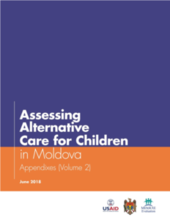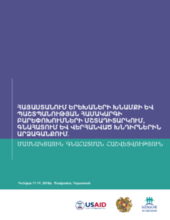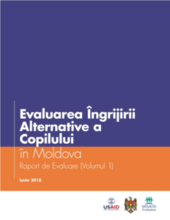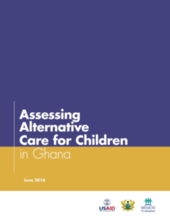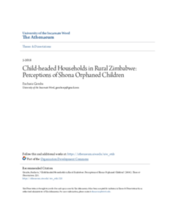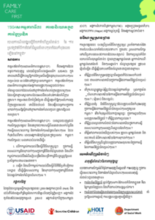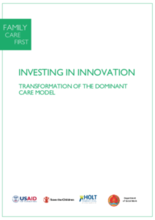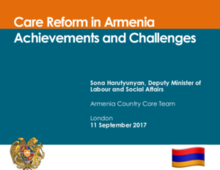Displaying 21 - 30 of 82
This report presents the findings of an assessment workshop aimed at informing action planning to address priority needs identified in alternative care for children.
This report, in Armenian, presents the findings of an assessment workshop aimed at bringing together key stakeholders—decision makers, policy developers, service providers, civil society representatives, and donors—to assess and identify the main care reform areas in which action is needed.
This report, in the Moldovan lanugage, presents the findings of an assessment workshop aimed at informing action planning to address priority needs identified in alternative care for children in Moldova.
This report presents the findings of an assessment of Ghana's national alternative care system aimed at supporting the government and its partners in continuing to advance alternative care.
This qualitative ethnographic case study explored the phenomenon of Child- Headed Households (CHHs) in rural Zimbabwe from the perspectives of a Shona community.
Family Care First (FCF) supported the study and documentation of existing reintegration and alternative family care services provided by seven implementing partners in Cambodia. This brief includes an outline of key findings of the study and concludes with recommendations based on those findings.
This study and documentation of existing reintegration and alternative family care services in Cambodia was designed to build the capacity of existing service providers to take emerging good practice to scale as an increased number of residential care institutions transition.
The purpose of this study was to describe the receipt of independent living services of youth who were formerly in care and who are currently living independently, while also looking at the skills and resources of youth who are currently in foster care in the US.
This presentation from the Deputy Minister of Labour and Social Affairs of Armenia provides an overview of the demographic data of Armenia and offers a thorough review of the situation of children's care, and care reform efforts, in Armenia.
This study assesses the impact of of official government intervention programmes in managing child vulnerability and Child Headed Households (CHHs) in South Africa.

